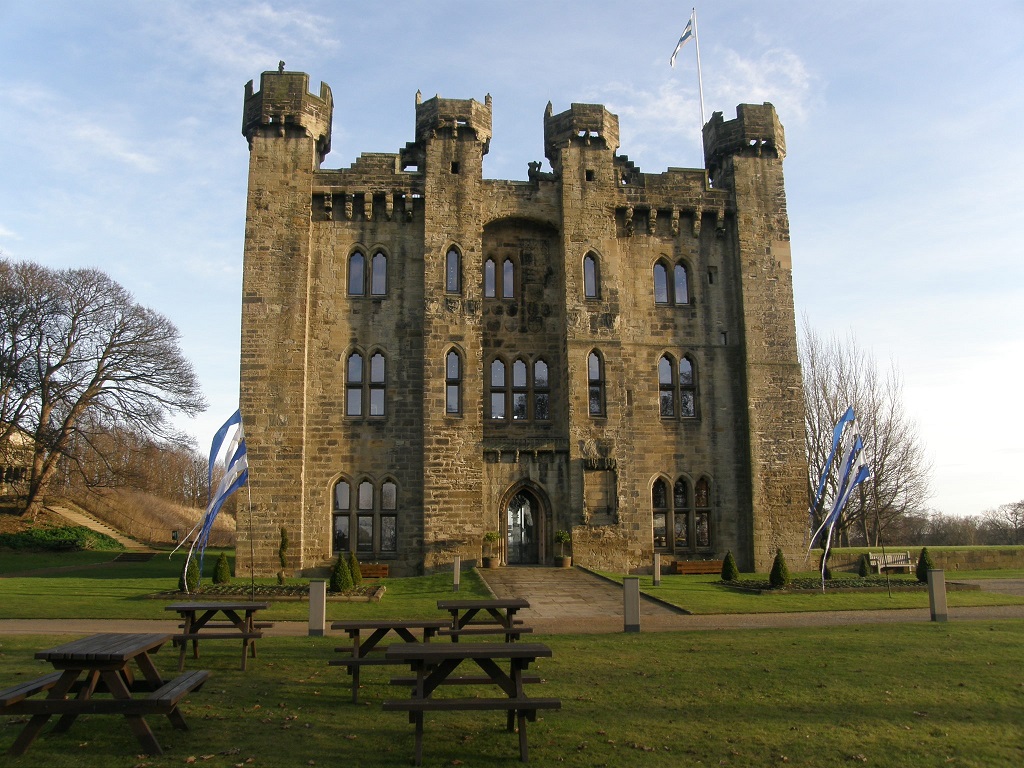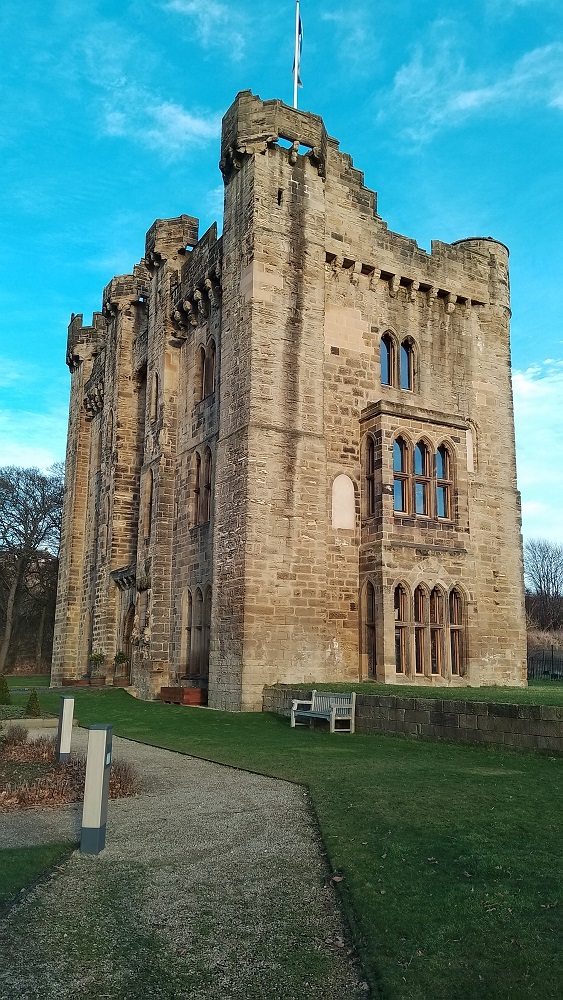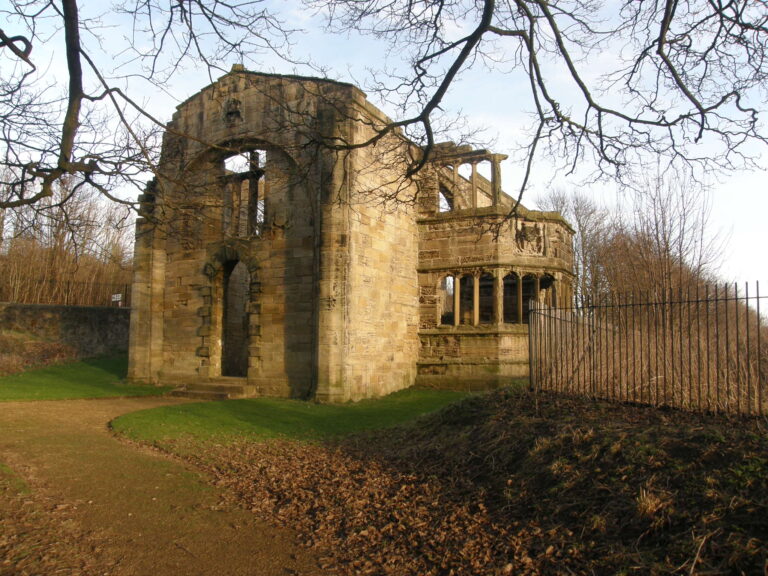Hylton Castle, a striking medieval fortification located in Sunderland, Tyne and Wear, stands as a testament to the rich history and architectural heritage of northeast England. With roots that trace back to the 11th century, the castle has evolved from a Norman stronghold into a beloved historical landmark. Its storied past, combined with its recent restoration efforts, makes Hylton Castle an unmissable destination for history enthusiasts and locals alike.

Early History of Hylton Castle
The origins of Hylton Castle can be traced back to the aftermath of the Norman Conquest of England in 1066. William the Conqueror rewarded loyal followers with parcels of land across the country, and the Hylton family received their estate in Sunderland. It is believed that a timber structure initially occupied the site before being replaced by the stone castle that stands today.
The present-day castle was constructed in the late 14th century by Sir William Hylton, a prominent member of the Hylton family. Built as a fortified manor house, its design reflects both military functionality and domestic comfort. The structure’s tall, rectangular shape, adorned with intricate heraldic carvings, is a striking example of medieval architecture.
Architectural Highlights
One of Hylton Castle’s most remarkable features is its decorative façade, which includes a series of coats of arms representing the Hylton family and their marital alliances. These carvings offer valuable insights into the castle’s history and the connections of its inhabitants.
The castle’s layout originally included a great hall, private chambers, and service areas. Though much of the interior has not survived, historical records and archaeological studies have provided a glimpse into the daily life of its medieval occupants. The surrounding grounds were once home to ancillary buildings, gardens, and even a chapel known as the Chapel of St. Catherine’s, further emphasizing the estate’s importance during its heyday.
Legends and Folklore
Like many medieval castles, Hylton Castle is steeped in legend and folklore. One of the most famous tales associated with the site is that of the Cauld Lad of Hylton. According to local legend, the Cauld Lad is the ghost of a stable boy who was tragically killed by a member of the Hylton family. The boy’s restless spirit is said to linger within the castle, playing harmless pranks and occasionally singing mournful songs.
The story of the Cauld Lad has captured the imagination of generations and remains a popular aspect of the castle’s folklore. Some visitors claim to have experienced unexplainable phenomena, adding a layer of mystery to Hylton Castle’s already fascinating history.
The Decline and Transformation
The Hylton family retained ownership of the castle until the mid-18th century, after which it changed hands multiple times. By the 19th century, the castle had fallen into disrepair, with parts of its structure repurposed or left to decay. Despite its decline, the castle’s historical significance was recognized, and it was listed as a Grade I building in 1950, ensuring its preservation for future generations.
In the 20th century, the castle’s fortunes took a positive turn. Local campaigns and community groups rallied to save and restore the site, recognizing its value as a cultural and historical asset. These efforts laid the groundwork for the castle’s revitalization in the 21st century.
Restoration and Community Engagement

In recent years, Hylton Castle has undergone extensive restoration, transforming it into a community-focused heritage site. Spearheaded by Sunderland City Council in partnership with Historic England and the Heritage Lottery Fund, the project aimed to preserve the castle’s structure while making it accessible to the public.
The restoration included stabilizing the stonework, creating modern visitor facilities, and developing educational programs to bring the castle’s history to life. One of the most innovative aspects of the project was the involvement of local residents in shaping the castle’s future. Community workshops, events, and volunteering opportunities allowed people to contribute to the site’s development, fostering a sense of ownership and pride.
Today, Hylton Castle serves as a vibrant cultural hub. Visitors can explore the castle’s history through interactive exhibits, guided tours, and events. The site also hosts educational programs for schools, helping young people connect with their local heritage.
Visiting Hylton Castle
Hylton Castle’s accessible location in Sunderland makes it an ideal destination for a day out. The castle is surrounded by beautiful green spaces, offering opportunities for leisurely walks and picnics. The nearby Hylton Dene, a picturesque wooded valley, adds to the charm of the area and provides a tranquil setting for nature enthusiasts.
Seasonal events and activities ensure that there is always something new to discover at Hylton Castle. From historical reenactments to family-friendly workshops, the castle’s calendar is packed with engaging experiences for visitors of all ages.
The Significance of Hylton Castle
Hylton Castle’s significance extends beyond its architectural and historical value. It serves as a reminder of Sunderland’s rich past and the resilience of its community. The castle’s transformation from a neglected ruin to a thriving heritage site is a testament to the power of collective effort and the enduring importance of preserving our shared history.
As Sunderland continues to evolve as a modern city, landmarks like Hylton Castle provide a vital link to the past, grounding the community in its heritage while inspiring future generations. Whether you’re a history buff, a local resident, or a visitor to the area, Hylton Castle offers a unique and enriching experience that showcases the best of Sunderland’s cultural heritage.
Booking information:
Hylton Castle offers guided tours that provide an in-depth look into its rich history and architecture. To plan your visit, here’s what you need to know:
Ticket Prices:
- Adults: £5
- Children: £3
- English Heritage Members: Free (membership card required upon entry)
All visits to Hylton Castle must be pre-booked, as the venue operates as a multi-use community space without set opening hours. Tours are typically available on Wednesdays and Saturdays and last around 1 hour. Additional dates added periodically. To check availability and book your tour, please visit the official Hylton Castle website’s booking page. Free parking is available and the castle is wheelchair accessible.
![{"capture_mode":"AutoModule","faces":[]}](https://discoversunderland.com/wp-content/uploads/2025/01/Molly.jpg)


![{"capture_mode":"AutoModule","faces":[]}](https://discoversunderland.com/wp-content/uploads/2025/04/boating_lake_Roker_Park-768x704.jpg)

2 thoughts on “Hylton Castle: Sunderland’s Historic Jewel”